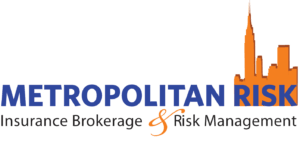Employee fraud can create disastrous consequences for a business owner that does not have the proper protection in place. Fraud is especially prevalent in tough economic times. Reasons that people commit fraud include rationalization, pressure, and opportunity. A recent report from the Association of Certified Fraud Examiners revealed that $994 billion were lost as a result of employee fraud. The following three tips are designed to lower the risk of becoming a victim of employee dishonesty, protecting your business from a net income loss.
Catch the Early Signals
The most effective way to prevent or deal with fraud is to catch it early. In order to do this you must be alert to company practices and employee behavior. There are certain indicators to be aware of when looking for potential fraud.
- Employees who never take vacation
- Employees who do not assign work to their coworkers
- Inconsistencies in employee’s reports
- Shortages in financial books
- Employees who may have excessive authority
- Employees who seem to live outside of their means
- Lack of documentation for reimbursements
Of course these indicators by themselves do not necessarily mean that fraud is occurring. They do however serve as a tool to notify you that further follow up is necessary.
Effectively Supervise
Supervision should be proactive without crossing boundaries. Policies and procedures should be written, implemented, and enforced. This is often done via employee handbooks or policy manuals which are critically important tools for any sized business beyond simply employee dishonesty. The documents should outline a zero tolerance policy on fraud and encourage all employees to report suspicious behavior on a confidential basis.
Effective Supervision requires some of the following actions:
- Do not delegate all financial responsibilities to one person. Instead, have a system of checks and balances;
- Require documentation to support financial reports;
- Take security measures like installing cameras;
- Conduct unannounced audits. This will serve as deterrence for fraud much like randomized drug testing deters drug use.
- Hire a CPA to conduct an audits at the very least annually ; we recommend audits done by an outsider quarterly so you catch it quicker.
- Require background checks;
- Set reasonable goals so employees do not commit fraud due to pressure;
- Educate your employees about fraud and treat them with respect;
- Keep inventory;
- Have employees sign in and out and require vacation time;
- Listen to your instincts and follow up on questionable behavior;
Take Appropriate Action
Once a complete and objective investigation is done and it is determined that fraud was committed, it is time to take action. The zero tolerance policy that you have implemented should be enforced to create future deterrence for other employees.
Lastly, in addition to following these tips it is important to have Crime and Fidelity Insurance, also known as employee dishonesty insurance to protect yourself against employee dishonesty or fraud. This very important insurance coverage can protect a small or medium sized business from absorbing the loss themselves. The premium quite often amounts to only a few hundred dollars predicated on the limit of coverage.
We hope you found this helpful. Stayed tuned for more unique and intuitive information from your friends at Metropolitan Risk Advisory.
